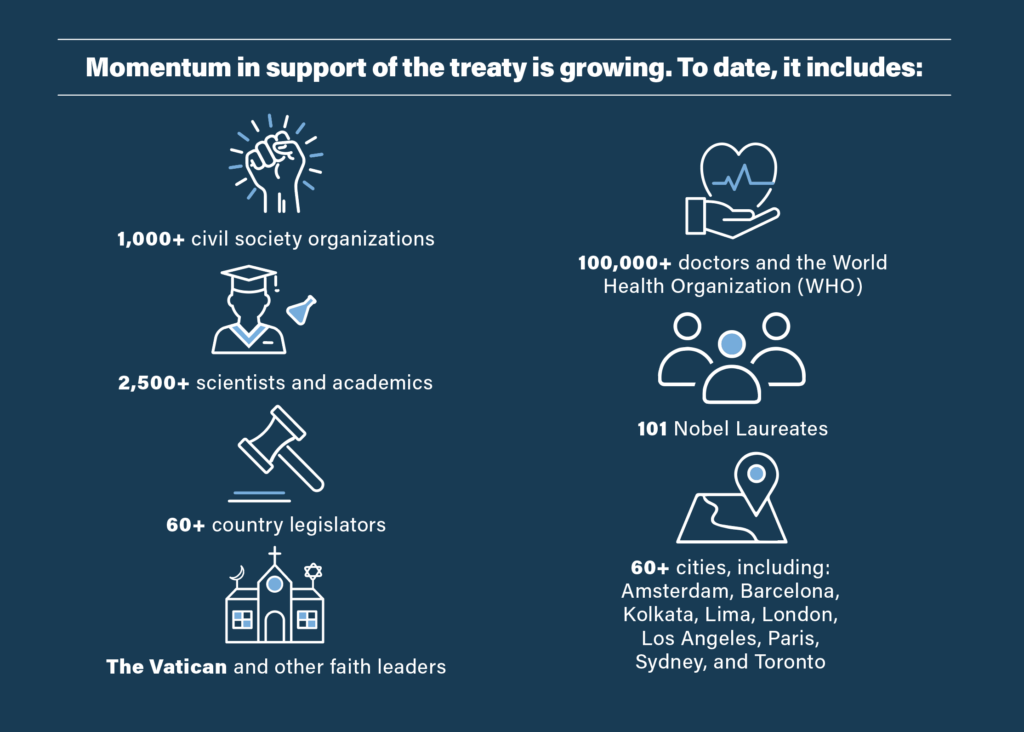Calls to phase out fossil fuels have been growing for years, led by frontline communities and civil society around the world. In 2019, CIEL joined a diverse Steering Committee to launch the Fossil Fuel Non-Proliferation Treaty, taking inspiration from international treaties to ban landmines and nuclear weapons. The treaty aims to defuse the threat of fossil fuels by securing commitments to immediately halt fossil fuel expansion, rapidly and equitably phase out existing production, and accelerate a just transition to a fossil-free, sustainable future. It is an important rallying point for advocates and an emerging element of risk for fossil fuel producers, investors, and nations considering new oil, gas, and coal projects. CIEL has helped strengthen international support for the treaty. In a historic step, at the UN General Assembly in September 2022, Vanuatu became the first nation to call for a binding global treaty to phase out fossil fuels in line with a 1.5C world.

